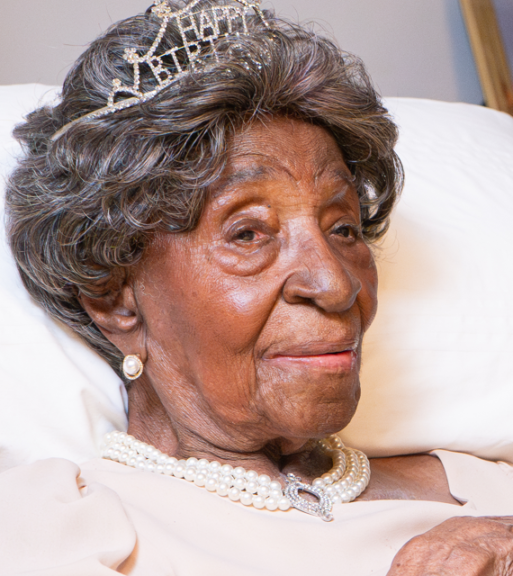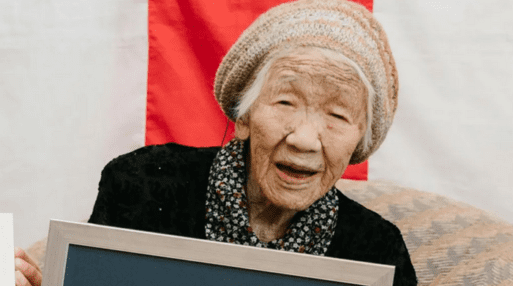
Elizabeth Frances is a super centenarian at 115.
Credit: Longeviquest
Elizabeth Francis, America’s oldest person, made headlines recently when she celebrated her 115th birthday, undoubtedly prompting many to wonder about their odds of living to 100 and beyond. The New England Centenarian Study has produced a calculator that can answer that question.
Describing itself as the largest and most comprehensive study of centenarians and their families in the world, Boston University’s New England Centenarian Study has been gathering research on the nation’s oldest citizens since 1995, and each “super-ager” seems to have their own formula for longevity.
For example, Francis attributes her faith in God, never smoking, and only occasionally having a glass of wine for her longevity. Japan’s Kane Tanaka, who until her death at 119 this year held the title of world’s oldest person, said family, sleep, hope and faith contributed to her long life. While research validates those views, the centenarian study has produced a data-driven list of factors that underpin a long life.

Kana Tanaka was the world’s oldest person when she died at 119.
Seven Factors That Predict Longevity
Thomas T. Perls, who founded and has directed the study since its inception, has summarized the criteria for becoming a centenarian with the acronym SAGEING. The seven behavior factors, now well established, include Sleep, Attitude (a positive attitude is conducive to longevity), Genetics, Exercise, Interests (something that gives you purpose and exercises your brain as much as your muscles), Nutrition (avoiding red meat and maintaining a healthy weight), and Get rid of smoking.
These factors form the basis of Perls’ 40-question longevity calculator, which estimates the age to which you’ll live. (The calculator predicts that 63-year-old Perls has another 31 years.)
Good Genes Give You an Edge
Beyond healthy behavior, the study has also found that super-agers had these factors in their favor:
– Exceptional longevity runs strongly in families
– Among centenarians, disabling disease is delayed until their early to mid-90s
– Those who live past 105 also dodge aging-related diseases until the end of their lives
Additionally, the genetic influence on survival increases as people age beyond their 90s. Research suggests that this influence likely involves many genetic variants that individually have modest effects, but collectively have a strong effect. However, with some rare exceptions, centenarians have just as many disease-associated genetic variants as the average population. So, researchers surmise that their genetic advantage is likely due to variants that slow aging and decrease risk for aging-related diseases such as heart disease, stroke, cancer, diabetes and Alzheimer’s Disease.
Centenarians Will Be More Common in the Future
If you’re lucky enough to be in the group that’s living right and has the right genes as well, you’ll find yourself in growing company if you make it past 100. According to a study by Pew Research Center, the U.S. centenarian population is projected to quadruple over the next 30 years, rising from an estimated 101,000 today to 422,000 by 2054.
By 2054, the global centenarian population is projected to grow to nearly 4 million. China is expected to have the largest number of centenarians, with 767,000, followed by the U.S., India, Japan and Thailand.
Whatever their natural advantages, as the New England Centenarian Study states on its website, “Centenarians are models of aging well.”

 More Americans Can Look Forward to Living Past 100
More Americans Can Look Forward to Living Past 100


 How Dare You Die Now!
How Dare You Die Now!
 Debating Medical Aid in Dying
Debating Medical Aid in Dying
 “Help Me, Helen”
“Help Me, Helen”














